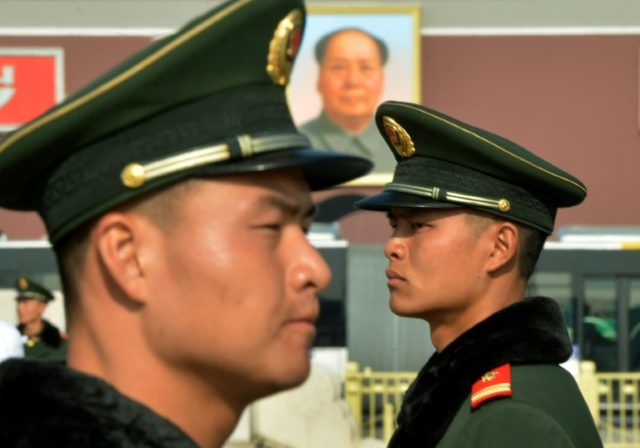After signing an accord with the Vatican on the naming of bishops, the Chinese communist party continues its systematic attacks on Christians in various provinces, local sources declared this week.
Authorities reportedly interrupted services at several Christian churches in at least four provinces around China, harassing the faithful, blocking entrances, removing crosses, and suspending worship.
“Christians in China are bracing themselves for the worst clampdown since the Cultural Revolution,” said Gina Goh, the regional manager of watchdog group International Christian Concern (ICC) in a press release this week.
“The scale and tactics employed by the authorities are unprecedented and disturbing. Every day there are churches across China that become fresh victims of persecution,” Goh said.
On September 22, the Vatican announced the signing of a “provisional agreement” with China on the appointment of bishops, without specifying the precise terms of the accord.
The long-awaited deal with China over bishops has been touted as a first step toward restoring diplomatic relations between the two parties and is the outcome of a series of meetings that began early in the Francis pontificate.
Critics have complained that ceding authority on the naming of bishops to a secular authority, and especially to an avowedly atheist regime like the Chinese Communist Party, directly contradicts Catholic teaching and violates common sense.
Pope Francis attempted to assuage the doubts of Chinese Catholics and others concerned with the deal by writing a letter on September 26 to Catholics and China and “the universal Church,” which said, in essence, “Trust me, I know what I am doing.”
“Some feel doubt and perplexity, while others sense themselves somehow abandoned by the Holy See and anxiously question the value of their sufferings endured out of fidelity to the Successor of Peter,” the pope wrote.
I am convinced that “encounter can be authentic and fruitful only if it occurs through the practice of dialogue, which involves coming to know one another, to respect one another and to ‘walk together’ for the sake of building a common future of sublime harmony,” Francis said.
In testimony at a U.S. Congressional hearing in Washington last week, China Aid founder Bob Fu described Chinese Communist Party (CCP) persecution under President Xi Jinping as comparable to the days of Mao.
“The CCP’s policies and principles for the management of religious affairs are returning to those evident in Mao’s era,” Fu said.
“Different from Mao’s era, in which the goal was to ‘eradicate religion’ organizationally, or even corporeally, through ‘socialist reform,’ the current Sinicization in order to bring religion in line with the CCP’s ideology aims to eradicate the mind and soul of religion,” Fu said.
Bishop Marcelo Sanchez Sorondo, the chancellor of the Vatican’s Pontifical Academy of Sciences, recently said that Chinese persecution of Christians is overplayed and critics of the new Vatican accord with China on the naming of bishop are nothing but a “loud minority” trying to stir up trouble.
“They are very strong in their position. They are loud, but there are not very many of them. They are a loud minority,” Sanchez said.
Bishop Sanchez repeated his conviction that the Chinese communist government “observes the common good” and has proved its ability to carry out great missions “like fighting against poverty and pollution.”
Like Pope Francis, China respects human dignity and the planet and both leaders support global efforts to fight climate change, Sanchez said.
Last February, Sanchez proposed China as the best example of a nation that effectively puts Catholic social teaching into practice, inducing experts on the subject to note the prelate’s “naivete” for his wanton praise of Chinese communism.
Follow Thomas D. Williams on Twitter Follow @tdwilliamsrome

COMMENTS
Please let us know if you're having issues with commenting.